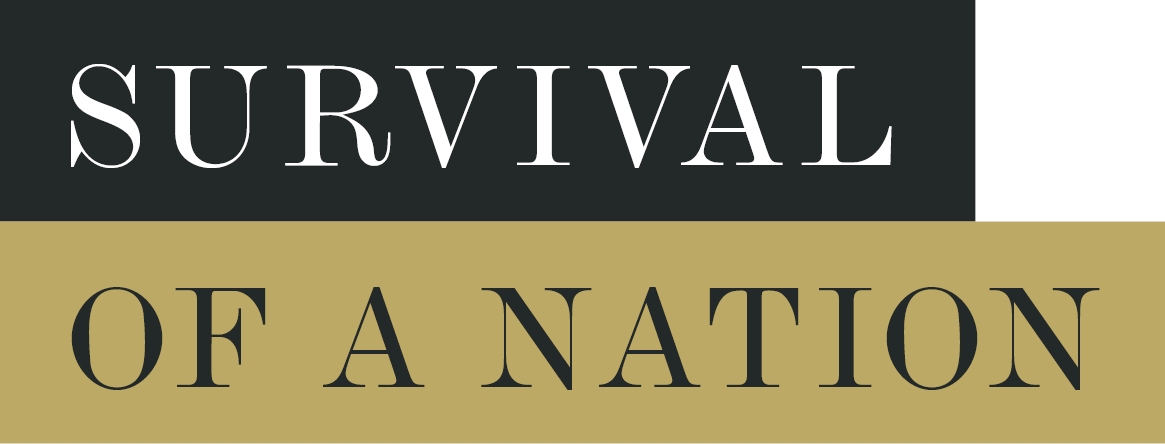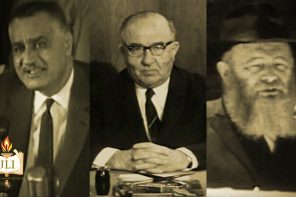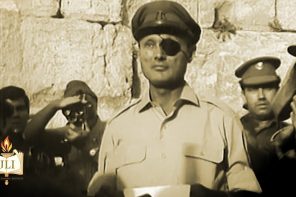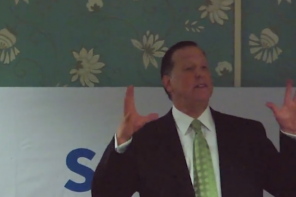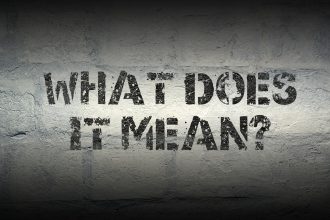By the Grace of G-d
Rosh Chodesh Teves, 5734
Brooklyn, NY
Dr. Yitzchok Isaac Moskowitz Long Beach, CA
Greeting and Blessing:
This is to acknowledge receipt of your letter of December 24th.
It surprises me that, apparently, you are misinformed about the present state of affairs in the matter about which you write.
In the natural order of things, it is now well-nigh impossible to do anything to reverse the tide, inasmuch as those who determine the policy have brought it to a situation where it is impossible to retract all that has been promised in regard to the returning of territories, etc. This is not the place to dwell at length on such a painful and appalling matter.
Perhaps you know that there is a judicial formula, which originates in the Torah (Talmud), to the effect: techilaso beratzon vesofo be’ones (“He began voluntarily and ended up under compulsion”). The time to have averted it was when I began to storm (naturally not through the press) immediately after the Six Day War, when those policy-makers hastily dispatched emissaries to Washington with assurances that they were prepared to return such-and-such territories, and that most of them were negotiable, etc. This was the “voluntary beginning” which has resulted in the present situation.
What will happen in the future—no one can say. But we are a people who depend on miracles, and, indeed, our whole existence as a small nation in a hostile world is also nothing short of a miracle. And so when the offer of territorial concessions was made immediately after and since the Six Day War, there was the miracle that the other party, the Arabs, rejected the offer. And during the Yom Kippur war there was even a greater miracle when the Egyptians, after crossing the Suez Canal with a huge army, known to be at least 100,000 strong, and most likely much stronger, yet for no reason stepped in their tracks only a number of kilometers east of the Canal, facing no military resistance, and with the road ahead of them wide open. Unfortunately, extraordinary opportunities on both fronts which the miracles had provided were missed, and, again, I do not wish to dwell on matters which do not reflect favorably on our fellow Jews.
As for the practical thing which Jews everywhere can do to help the present situation—something which is most regrettably ignored, in line with playing down the obvious Divine intervention in the most critical days of the war—is that every Jew must strength his bonds with the Torah from Sinai, when G-d made us the “chosen people.” This is also something of which we need not be ashamed, for contrary to those who misunderstand or misrepresent this in terms of privilege which smacks of chauvinism, this chosenness is primarily a matter of duty and obligation to be a model people for the whole world to emulate, a people where form takes precedence over matter, the spiritual over the material, and the soul over the body, a people which was destined to be “a light unto the nations” (Isaiah 42:6, etc.). It is this kind of life and conduct which the Torah describes that also stimulates right thinking and the proper outlook on life. It is this kind of life that also strengthens the selfconfidence of every Jew wherever he may be, and enables him to shed any inferiority complex and the readiness to be impressed by a goy, or by an idea which comes from a goy, or actually non-Jewish ideology. It is sad indeed when, instead of being a model and a living example for non-Jews to emulate, some Jews fall over themselves to emulate non-Jews, rejecting the “spring of living waters,” the Jewish Torah and Jewish tradition, etc.
It is surely unnecessary to point out to you, an M.D., the psychological factor which has such an important role when two adversaries confront each other. When the adversary sees that his opponent is spiritually and psychologically strong and self-confident and certain of his just cause and not prone to be impressed by the adversary or any non-Jew due to the inferiority complex mentioned above—this is the best way of preventing wars, not only major wars, but even wars of attrition. It is hardly to be expected that a Jew, who in his personal life is afraid to show that he is a proud Jew, whether at home or outside, who prefers to stack his library with non-Jewish volumes and authors, etc., and who makes sure to bring up his children in a way that when they walk in the street they should show no signs of being Jewish, yet this same Jew should draw the line and take a different posture when he meets a political adversary and engages in political negotiations with representatives of other countries. Could such a Jewish representative truly consider himself at least equal to the gentile adversary in such a confrontation, having tried all his life to emulate and follow slavishly the gentile world and way of life?
And whatever pretense and façade he might make will surely not convince the adversary.
The same is true, of course, in regard to the education of the Jewish children, who are brought up on the culture of the various nations of the world, and where Jewish tradition and culture take second place at best or are non-existent. Could such children grow up into proud Jews, dedicated to their heritage, and defend it? Parenthetically, here we find perhaps the greatest miracle, namely that despite the face that a substantial segment of our Jewish youth in Eretz Yisroel has been, unfortunately, brought up in such a non-Jewish atmosphere, implanting in them the idea that the non-Jewish culture is something superior to their own Jewish heritage, yet they had the strength at the critical moment to realize that they will not be intimidated by superior physical forces confronting them, and acquitted themselves in with such extraordinary valor. They were quick to realize, much more so than some of their elders, that G-d has clearly intervened in their behalf, and with characteristic honesty and sincerity of youth drew their conclusions, as is evident in the great religious revival among the rank and file of the defenders of our Holy Land. One could only wish that this inspiration and revival would be further stimulated and not allowed to evaporate.
Were the theme at hand one that is gratifying both to the writer and reader, it would have been worthwhile to expand on it. But since it is one that has the opposite effect, I must reduce it to a minimum. I trust, nevertheless, that it will suffice for a person of your background, and will stimulate you to use all the influence and energy which Divine Providence has given you to do everything possible to strengthen Torah-true Jewish education, both in your immediate surroundings and wherever your influence can be felt, instead of the schizophrenic education to which so many Jewish children are exposed and the polarity with which they are brought up, which reduces their Jewish identity to a miniscule part of their daily life, or to three days in the year when the parent feels impelled to go to the synagogue and pray and identify himself with his fellow Jews.
This is an area where every Jew, man or woman, young or old, both in the Holy Land and in the Diaposra, can and is duty bound to do something. And if one should think, what can a single person, or even a single act, accomplish—we live in a day and age where it is repeatedly demonstrated that even a small thing or a small act can have tremendous effects, and in this case tremendous effects for the benefit of all our Jewish people everywhere, including the Holy Land, which is the subject of your letter.
To conclude, finally, on the note of Chanukah which we have just celebrated. The events recalled by Chanukah seem rather strange. For there were in those days wars and battles, apparently fought in the natural way with actual weapons and military strategy, etc. Yet, the victory was on the side of the physically weak and few, led first by a Kohein Gadol, Mattisyohu, and then by his son, who defeated the mighty and many. One would have expected that our Jewish people, whom the Torah describes as a “wise and understanding nation,” would celebrate Chanukah in an appropriate way. Actually the miracles of Chanukah are symbolically celebrated by the lighting of a small candle, requiring it to be displayed outside, so that it should illuminate not only the Jewish home, but also the outside, and to do this in a steadily growing manner, by adding another candle, and yet another candle each night of Chanukah. This is to symbolize and underscore that Jewish strength lies in the light of the Torah and mitzvoth, with which they not only illuminate their own life, but also illuminate the darkness of the world, and it is this that has become such a great and cherished mitzvah for Jews. To quote the Rambam, the great healer of both body and soul, and the Guide of the Perplexed (which is the name of one of his famous works), of his generation and of all posterity: The mitzvah of the Chanukah Light is a very beloved mitzvah, and every Jew should observe it meticulously, in order to make known the miracle and give additional praise to G-d and express gratitude for the miracles which He has wrought for us” (Hilchot Chanukah, ch. 4:12).
Needless to say, although we kindle the Chanukah lights only eight days in the year, their lesson and message is continuous one throughout the year, and reflects the special mission which every Jew has been given by G-d, the One G-d, in His one and only Torah. Hence it is also certain that G-d provides every Jew with the ability to carry it out in the actual daily life, in deed, words, and even in thought.
I cannot, of course, miss this opportunity of expressing to you my great pleasure and gratification for your cooperation and assistance in our Chabad work in your region. I do not mean it simply as “help,” which would imply the assistance given of one to another, for I consider it as a partnership in which your interest is truly your own as well as of those benefiting from it. May G-d grant that here too your cooperation should proceed in a growing measure, in the spirit of the Chanukah lights mentioned above.
With blessing,
[signature]